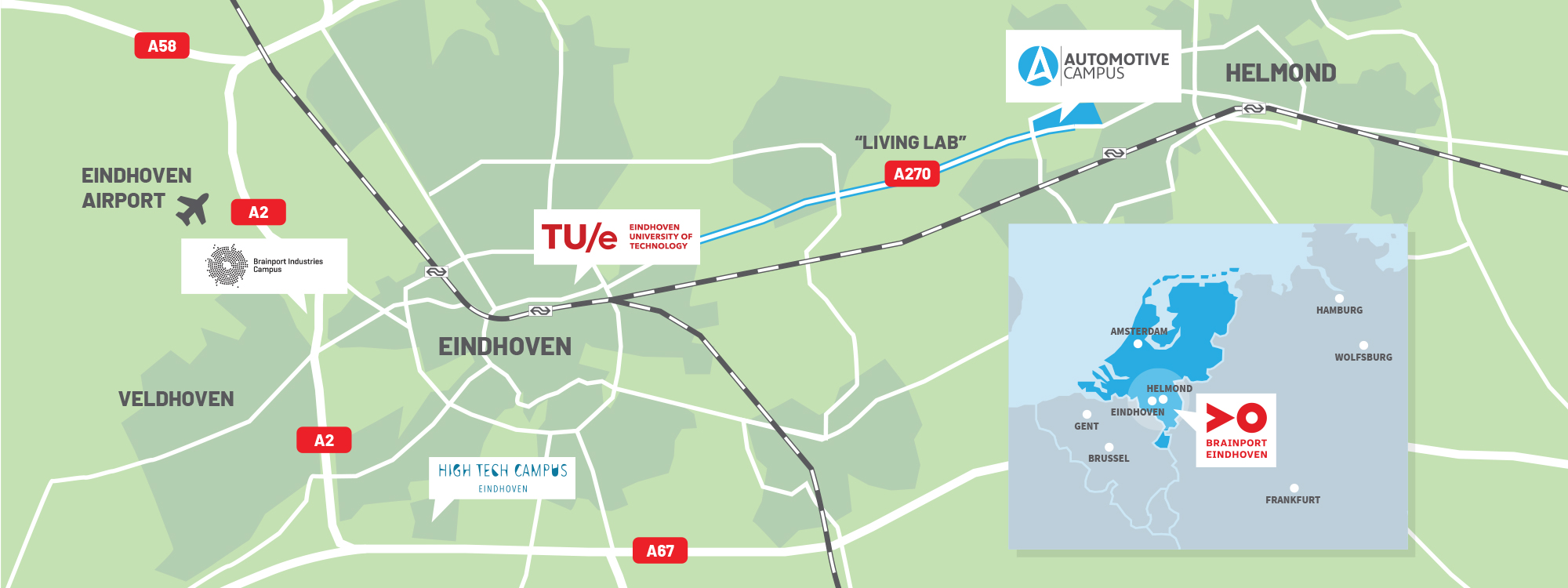PRESS RELEASE
Helmond, July 14, 2023
TU Eindhoven students develop fastest charging electric race car in the world
Charging an electric race car at the speed of normal refueling? TU Eindhoven student team InMotion is coming awfully close with the development of the Revolution. The racing monster is capable of a full recharge in less than four minutes, making it the fastest-charging long-distance electric race car in the world, as far as is known. The vehicle was presented July 13 in Veghel.
InMotion started in November 2022 with more than 30 students to design and produce the new battery pack in the race car. Remarkably, this battery pack charges in just 3 minutes and 56 seconds, with 322 kW of charging power, a total capacity of 29.2 kWh and a range of about 250 kilometers. Bringing the charging time down for electric cars is important to make electric driving easier and therefore more accessible to consumers. InMotion is picking up that gauntlet and is now actually getting close to a pit-stop-worthy charging time.
Innovation
A lot of heat is released during fast charging, which causes accelerated degradation, explains team manager Julia Niemeijer. "In the past, we developed an innovative cooling technology at module level, where cooling plates filled with coolant were placed between the modules with cells. This already allowed us to get a lot of heat out of the package. If you want to get the heat out of the battery pack as much as possible, you want to cool as close to the battery cells as possible. So recently we developed a method that allows us to cool at the cell level, where there is actually coolant flowing between each cell. This means we pull even more heat out of the pack. This has a hugely positive effect on service life and repeated fast charging. A 24-hour test shows minimal degradation as a result."
Cooling at the cell level is not yet common on the market, which is why InMotion has developed its own modules. Niemeijer: "Very challenging was that there was only a few millimeters of space between the cells in the module to apply the cooling technology. As a result, we had to work very precisely. We are extremely happy to have found a method that makes this possible."
Inspiration
InMotion's goal is to demonstrate that it is indeed possible to reduce the charging time of an electric car, to a level comparable to refueling gasoline cars. By doing so, they hope to make electric driving more attractive to consumers and challenge the industry to make the world a greener place. Of course, if a group of extremely motivated students can pull this off, the industry can't be left behind.
"Student teams like InMotion are important, triggered by a challenging application such as in this case an electric race car, to push boundaries and try out new technologies in practice. Being able to charge the battery in an electric car faster is certainly not trivial and is important for even faster market acceptance, in which innovations such as a battery pack with highly optimized cooling will play an important role," said Henk Jan Bergveld, part-time professor of Electrical Engineering at TU/e.
Implementation
The technology has been tested at research institute TNO and technology company Prodrive. "The beauty of the technology is that it is possible to make battery packs of different sizes," explains technical manager Stijn van de Werken. "It is often thought that smaller battery packs charge faster than larger packs. However, this is not the case. No matter how big you will make the pack, the charging time will remain the same, as long as the charging station can supply enough energy. This ensures that there are many possibilities for implementation."
The student team implemented the technology in an LMP3 race car. The LMP3 is the prototype class of the famous 24 Hours of Le Mans, designed for young drivers and new teams to enter. Van de Werken: "We will test the race car even more thoroughly on the track in the coming year." Ultimately, InMotion dreams of presenting the technology at the 24 Hours of Le Mans, so that the battery pack is tested in the toughest conditions imaginable, namely long-distance racing.



